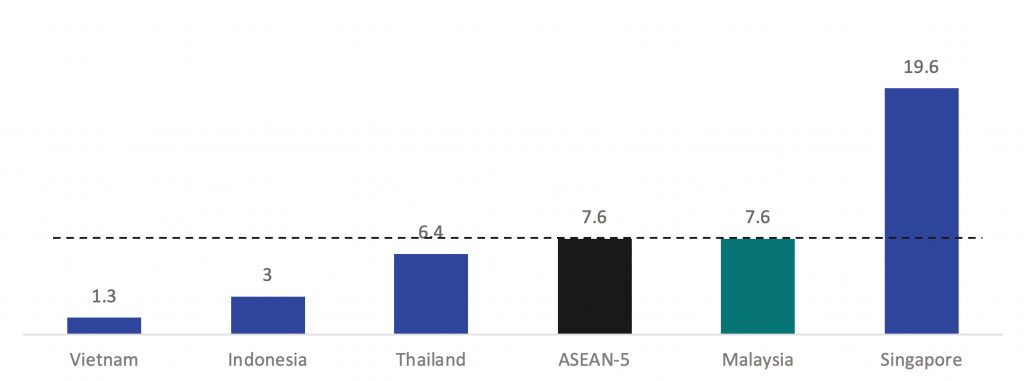Malaysia Population Research Hub

Despite being exposed to the importance of waste management and the 3R (Reduce, Reuse, Recycle),about only 9% of Malaysian households practice recycling as of 2012. In particular, household E-waste will be a rising trend over the next decade and early measures should be taken before it becomes difficult to manage in the near future. Malaysians face challenges in practicing sustainability due to the difficulty and inconvenience of doing so. However, it is also the matter of Malaysian’s heightening the importance of sustainability, as a large number of households said that they ‘do not see the need’ to practice the 3R.


An average Malaysian household throws away more than one month’s salary on food they do not eat (accounting to 50% of household waste) .It was found that 20%, or 3,000 tonnes of the total food waste in Malaysia could still be eaten when it was thrown, and could feed over 1.2 million people with 3 meals a day.
Malaysia’s food waste per capita is also higher compared to high income nations such as the U.K., Japan and neighbouring Singapore.
Subsequently, large volumes of discarded food results in health hazards and also greatly affects food security in the country.


Malaysian households are consuming water faster than the production of water in treatment plants. Malaysians also rarely optimize their water resources despite the all year round availability, for example, collecting rainwater for gardening or greywater for washing the garage. Compared to neighbouring countries,
Malaysia records a higher amount of water consumption per inhabitant.
(58% higher than the Asia average water consumption amount, i.e. 132 litres per day for each inhabitant.)

